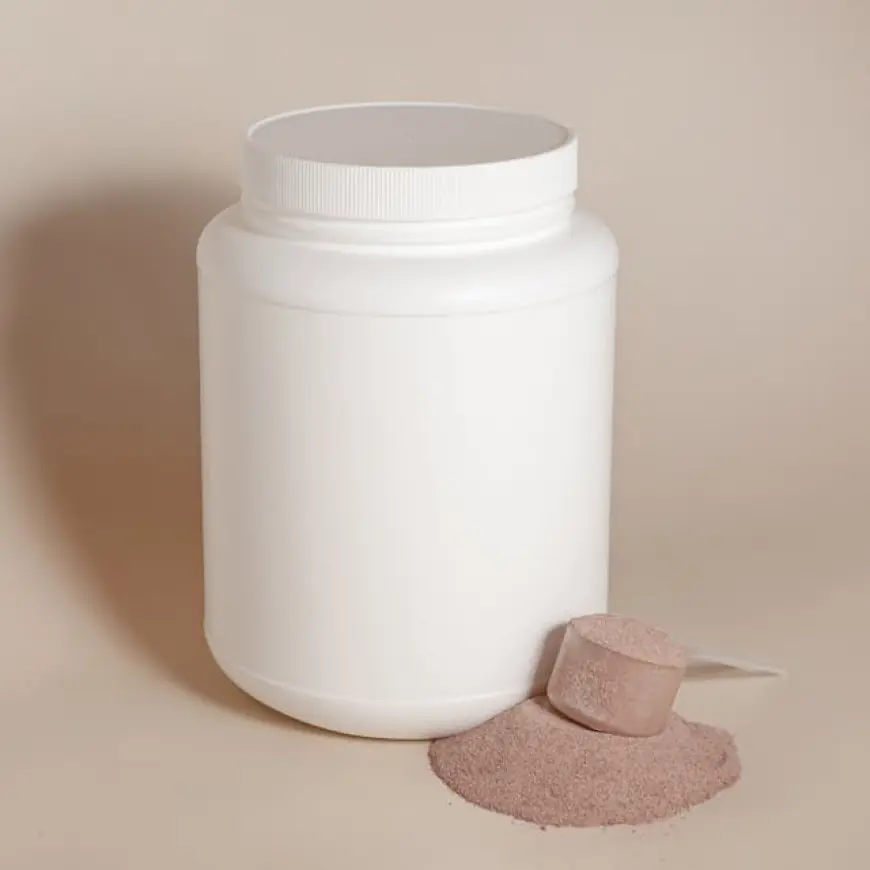Protein and Hydration: Tips for Staying Optimally Fueled and Hydrated
Stay fueled and hydrated! Discover why protein and hydration are vital, how to optimize them together, and practical tips to maintain energy every day.

Peak performance and proper health can be achieved by taking care of two main factors that are crucial for the body to function well: protein and hydration. Both elements fuel your body, repair muscles, and keep all vital body functions going. Whether you are an athlete, a fitness enthusiast, or just trying to be healthy, knowing how to align the intake of protein, including any protein powder, with water can significantly improve your performance as well as your recovery from exercise.
Why Protein is Essential
It plays a very essential role in the repair of muscles, energy generation, and synthesis of enzymes and hormones. For active people, it helps their muscles to recover and grow post-workout. Protein powders are convenient and very effective for meeting your daily requirements, especially when balancing a busy lifestyle or needing that post-workout boost.
The main benefits of protein are
Muscle Repair: Protein repair and build muscle tissue over time after exercise.
Energy Support: Provides essential amino acids for sustained energy during physical activities.
Convenience: Protein powder provides a rapid fix to meet the protein requirements, mainly post-workout.
The Role of Hydration
Hydration is just as essential because it helps facilitate almost every function in the body. Water aids in the regulation of temperature, lubrication of joints, and transport of nutrients, including protein, around the body. Even slight dehydration can cause damage to physical performance, cognitive function, and recovery times.
Benefits of proper hydration include:
- Enhanced nutrient absorption.
- Increased stamina for physical exercise.
- Prevention of muscle cramps and fatigue.
Optimizing Protein and Hydration Together
To maximize the benefits of protein and hydration, consider the following strategies:
1. Distribute Protein Intake Throughout the Day
Take the intake of protein in large quantities over the day so that there is a steady supply of amino acids to your muscles for repair and metabolic use.
2. Hydrate Alongside Protein Consumption
Protein metabolism also yields products like urea, which are filtered out by the kidneys. In addition, staying hydrated is important because high-protein diets have been associated with dehydration.
3. Post-Workout Recovery
After a workout, drink a mix of protein and fluids to replenish glycogen stores, repair muscle tissue, and restore hydration. A post-workout shake or smoothie made from protein powder and water is easy and effective.
4. Incorporate Hydrating Foods
Most of the fruit and vegetables such as watermelon, cucumbers, and oranges are very high in water and full of wonderful vitamins and minerals. Mix these with a protein source for a balanced snack.
5. Use Electrolytes When Needed
For high-intensity or long-duration exercise, replace the electrolytes lost along with the water. Electrolyte-containing drinks or electrolyte-rich foods like bananas prevent muscle cramping and augment rehydration.
Practical Tips for Everyday Life
- Follow a Protein Guideline: The need for an adult to ingest daily about 0.8 grams of protein per kilogram of body weight increases among active individuals to 1.2–2.0 grams per kilogram.
- Drink Water Consistently: Take at least 8-10 glasses of water in a day and increase according to activity level and climate.
- Plan Your Meals: Incorporate sources of lean protein into your diet such as eggs, fish, chicken, lentils or tofu. Pair it up with hydrating side dishes such as leafy greens or fresh fruits.
Debunking Common Myths
- Myth 1: Water and protein consumed together impede digestion.
Truth: Water aids digestion and transports nutrients, such as protein, into the bloodstream.
- Myth 2: Protein alone is sufficient for muscle recovery.
Truth: Hydration is just as important for delivering nutrients to the body for proper muscle function.
- Myth 3: Hydration requirements are the same for all.
Truth: Level of activity, body size, and environmental conditions all dictate individual needs for hydration.
Ways to maintain optimal energy levels
1. Morning: Consume a glass of water in the morning followed by a high-protein breakfast such as scrambled eggs.
2. Mid-Morning: Chew on some nuts and a hydrating fruit such as an orange.
3. Lunch: Consuming lean protein in the form of grilled chicken or tofu accompanied by mixed greens and cucumbers.
4. Post-Workout: Mix a protein shake with water or a hydrating smoothie; Ensure you use the right protein powder.
5. Dinner: Opt for fish or lentils with a side of steamed vegetables.
Final Thoughts
Optimal protein and hydration levels balance performance and health. Including protein powder in your routine can make it easier to consistently maintain a high protein level, which can be useful in recovery and muscle repair post-exercise. If paired with proper hydration techniques such as drinking water while doing shakes or meals, this will help optimize nutrient uptake and allow your body to perform and recover efficiently.
Hydrate, and also protein powder, a daily must, adjusted towards your lifestyle and activity levels. It will make you as strong as possible, ready to meet your goals; whether it is recovery in the case of protein powder immediately after working out or whether it serves as a supplement for quick meals, rehydration is the key element that unlocks its benefits into overall wellness.
What's Your Reaction?
 Like
0
Like
0
 Dislike
0
Dislike
0
 Love
0
Love
0
 Funny
0
Funny
0
 Angry
0
Angry
0
 Sad
0
Sad
0
 Wow
3
Wow
3





















































